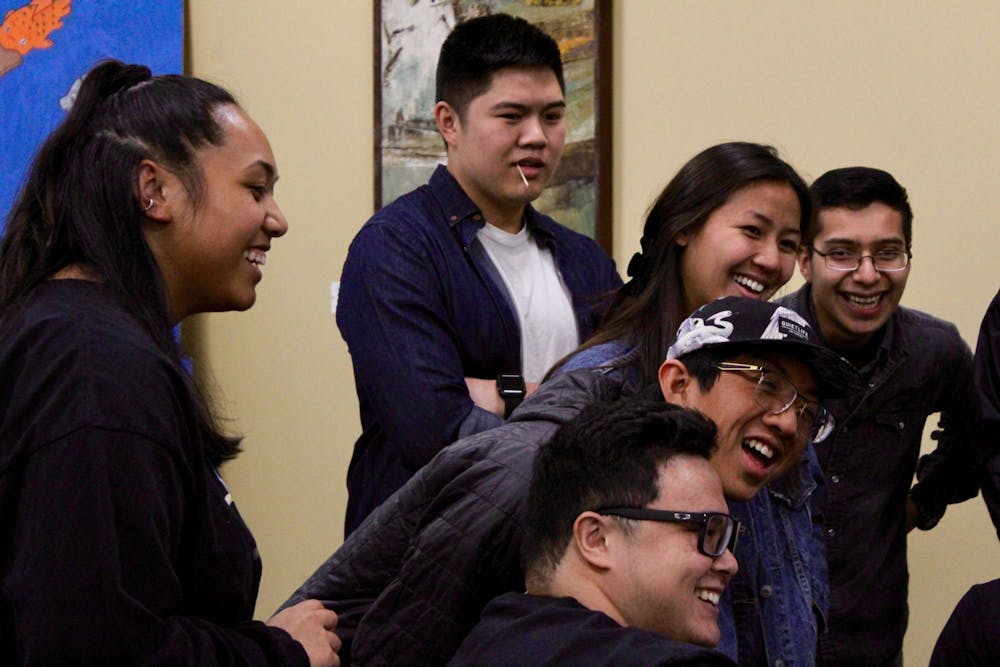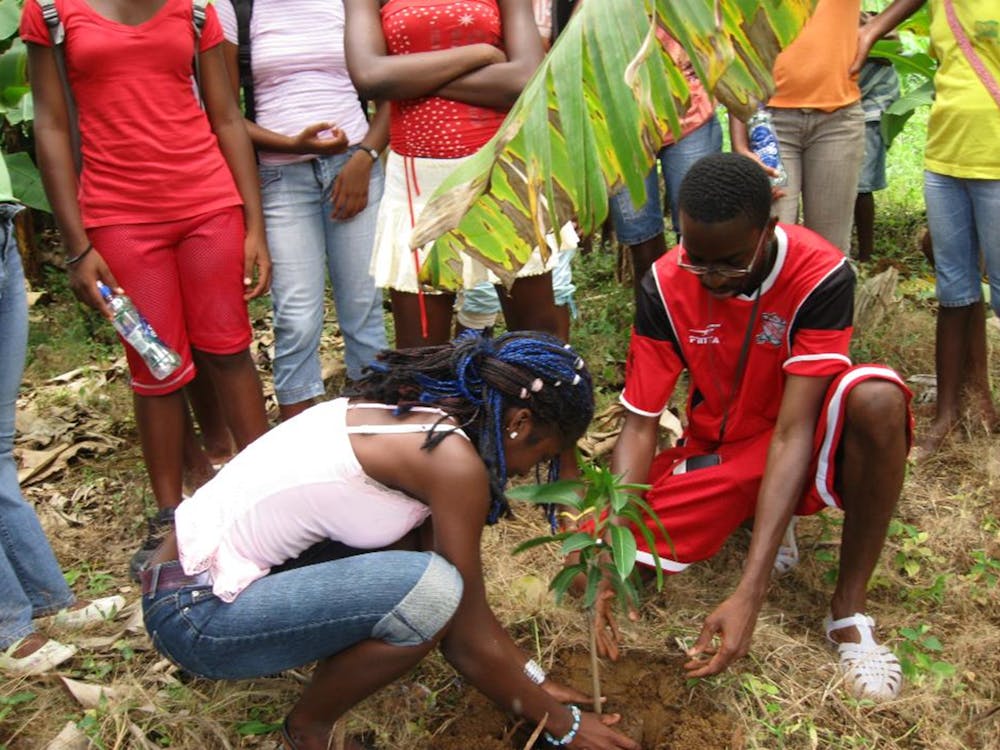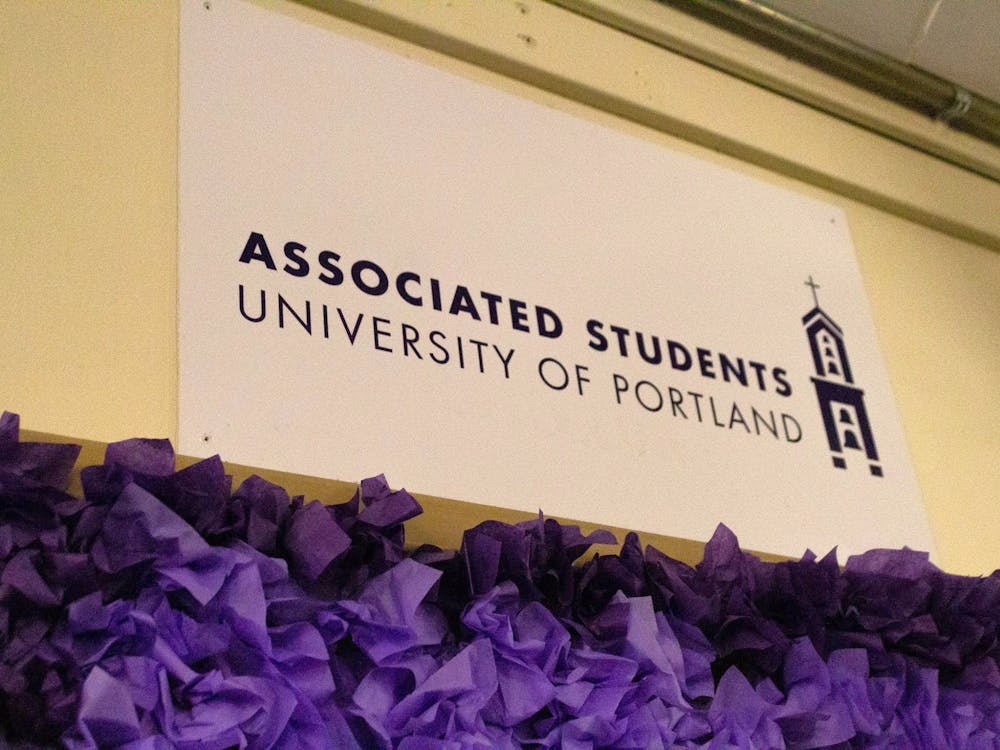As part of Diversity Dialogues, the University of Portland Hawaiʻi club hosted an event on Saturday, titled “E Mālama Kākou i ka Honua a Mālama ka Honua iā Kākou (Care for the Earth and the Earth Will Care for You),” that aimed to teach students about indigenous water sustainability practices. The event was largely interactive and had six different stations that students could visit as the club members explained various concerns about sustainability.
In preparation for their 43rd annual Lū‘au, which is set for Mar. 23, the club decided they wanted to focus on the theme of sustainability in all their events. Senior Logan Takeda, the Hawaiʻi Club President, spoke on the importance of sustainability in Hawaiʻi specifically.
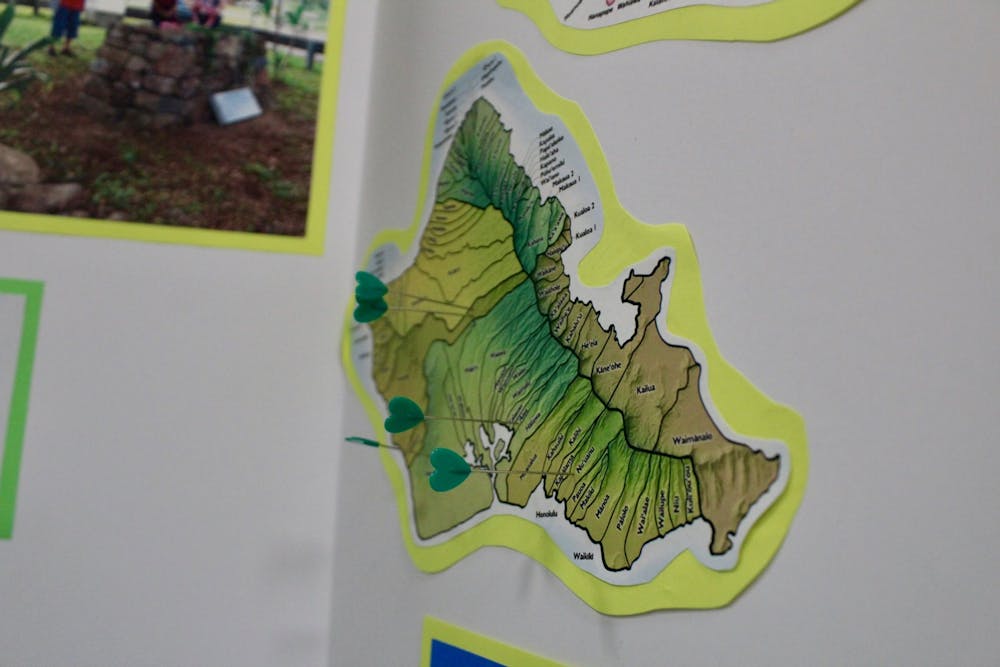
Attendees were welcomed to place heart pins in a map of the islands of Hawai'i to indicate where they are from at the first station.
“Since we live on an island and in a tropical area, we feel climate change’s effects a lot differently than in Oregon,” Takeda said. “A big problem that’s in the back of our minds is the rising sea level and how it will affect homes near the shore.”
Various members of the Hawaiʻi Club made poster boards, set up games and served Hawaiian food catered by local vendors. Club members, or “tour guides,” led students around the stations, using informational poster boards to help explain the various topics.
Each station also had a hands-on activity or game to go with it, such as one where students tried to figure out which species of animals were invasive or native. At the final station, visitors were given sustainable items such as reusable utensil kits, metal straws and vegetable bags.
Junior Nataliya Apa, who ran the event alongside Elisha Faagai, also explained the personal value this event has for her.
“I’m native Hawaiian, so culturally I always learned that we have a very strong interdependence with the environment,” Apa said. “Ensuring that we perpetuate the earth is a key part of who I am.”
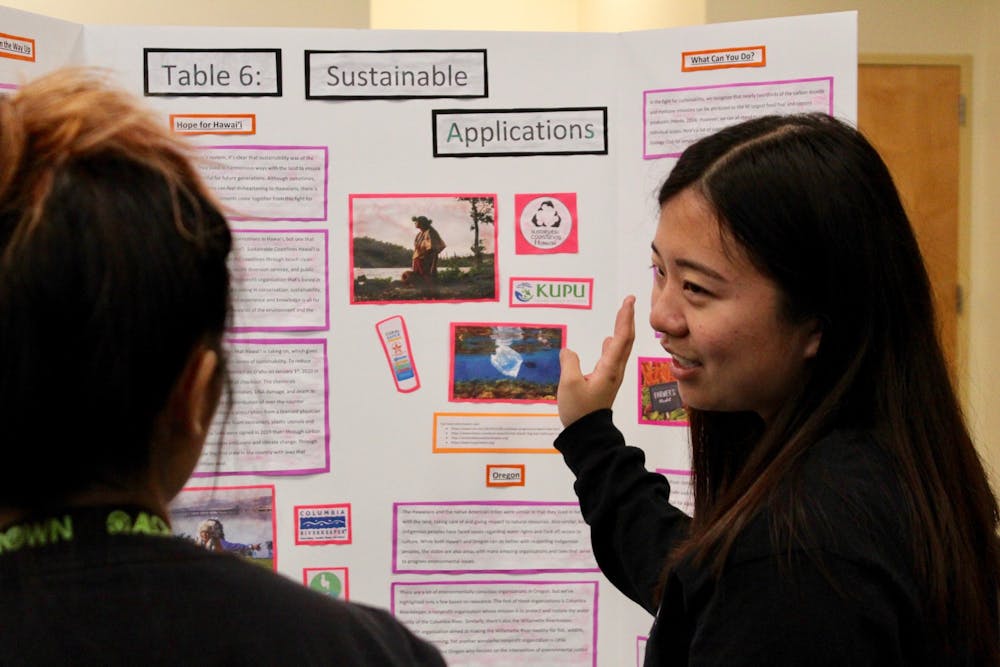
Secretary of the University of Portland Hawai'i club, senior Julia Kimoto, guides an attendee through the Sustainable Applications station.
Out of the six stations at the event, four of them dealt with sustainability issues that are unique to Hawaiʻi, while the last two were focused on issues in Oregon and at UP. The first four stations addressed the Ahupuaʻa (the Hawaiian water system), plants and animals, farming and fishing. The last two addressed water rights as well as sustainable applications that students could make around campus.
Making sure that sustainability was addressed in both contexts was a main goal of the event. The club collaborated with ASUP Committee on Sustainability and Social Responsibility to get information about sustainability laws and practices in Oregon that they could compare with Hawaiian practices. For example, one station focused on how the construction of dams and other hydroelectric facilities negatively affects the land and indigenous populations.
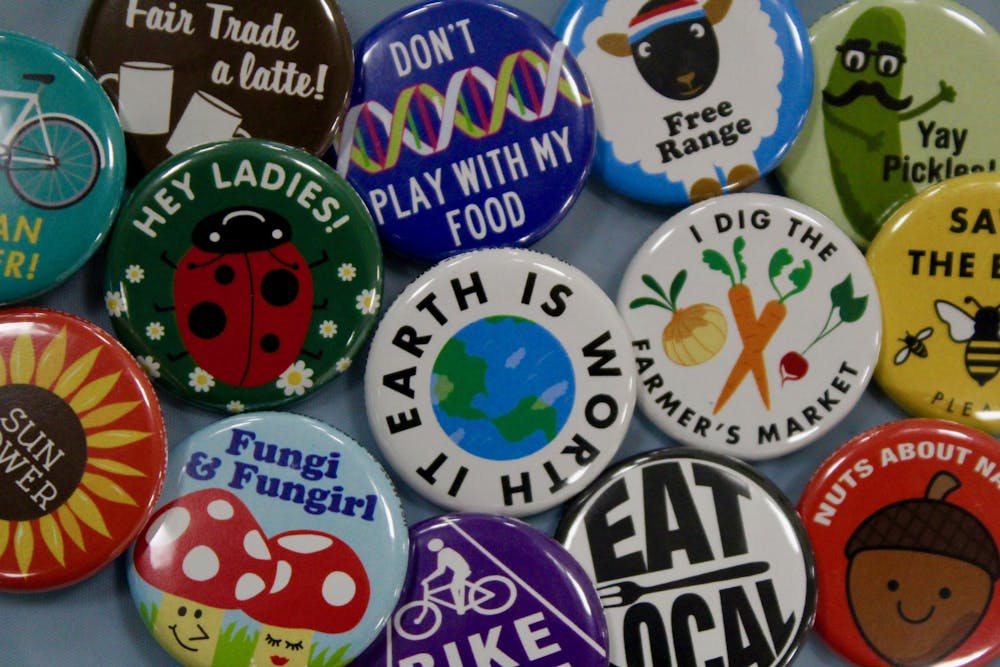
The Hawai'i Club Diversity Dialogue event had a variety of assorted pins that maintained a theme of sustainability throughout their booths.
In addition to ASUP, the club worked with other student-led groups on campus such as the Society of Hispanic Professional Engineers (SHPE) and the Ecology Club. Ernesto Zurita, a member of SHPE and attendee of the event, helped make a visual model for the Ahupua’a station, which was focused on Hawaiian topography. Zurita, a mechanical engineering major, worked with other members of SHPE to laser print and assemble the model, which was then painted by members of the Hawaiʻi Club.
“I really liked this event because we don’t often talk about the impacts that a lot of industrial practices have on local indigenous communities,” Zurita said. “I’ve seen it happen before when I visited Mexico and it doesn’t surprise me that it's happening in Hawaiʻi. I think it's very important for people to come out and learn about these kinds of things.”
Ajay Davis is a reporter for The Beacon. He can be reached at davisaj22@up.edu.



